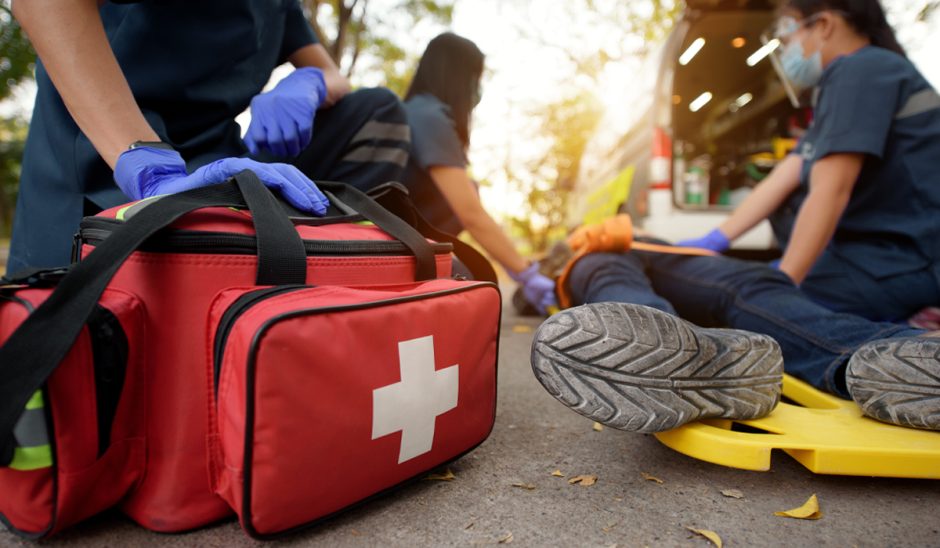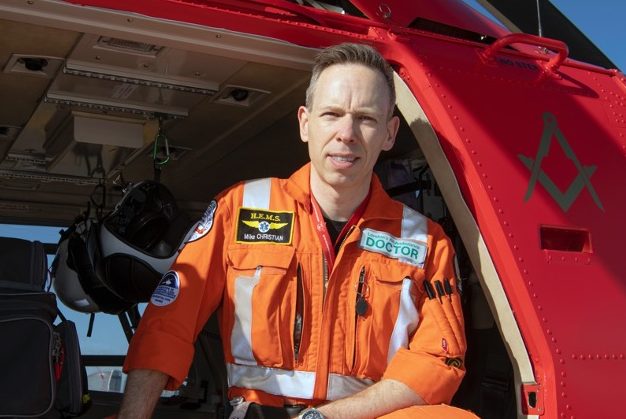
In a medical emergency, every second counts. The care a person receives at the scene of an incident and on route to the hospital can make a lifesaving difference.
In much of B.C. and Canada, pre-hospital care is delivered solely by teams of paramedics. However, a new UBC study suggests that physicians and paramedics working alongside each other on specialized teams could greatly improve patient outcomes, especially in rural and remote areas.
The analysis of jurisdictions that use interprofessional physician-paramedic teams shows they can increase patient survival rates by 49 per cent and decrease mortality risk by 20 per cent.

“Pre-hospital care is especially important to rural, remote and First Nations communities. Travel times to remote communities, combined with variable weather, mean that it can take hours or days to get a patient to hospital,” said senior author Dr. Mike Christian, a clinical professor of critical care medicine at UBC and consultant to the Rural Coordination Centre of BC on transportation issues.
“Given that our findings indicate that patient outcomes can be improved, interprofessional team-based pre-hospital care, which is the standard in most parts of the world, is something that should be strongly considered and explored to benefit people here in British Columbia and across Canada.”
In an interprofessional care model, physicians and paramedics work together to care for patients at the scene of a critical injury or illness, as well as when transported from smaller communities to larger hospitals. These specialized teams area able to provide advanced treatments earlier, while ensuring rapid transport to right hospital based on individual patient needs.
Although such teams are not common in Canada, they are used by some Canadian jurisdictions and most others around the world including Australia, the United Kingdom, Scandinavia and Japan.
For the study, Dr. Christian and UBC medical students Matthew Lavery and Arshbir Aulakh reviewed dozens of international papers and conducted a meta-analysis to examine the benefits of interprofessional models compared to paramedic care alone.
“This research profoundly shifted my understanding of the critical role physicians can play in prehospital critical care,” said Matthew Lavery, a fourth-year medical student with UBC’s Southern Medical Program and study co-author. “This experience has solidified my desire to contribute to the advancement of pre-hospital care systems and improve patient outcomes through innovative models of care delivery.”
The study authors point to a few local examples where the innovative model is successfully implemented within BC. North Shore Rescue and the Kootenay Emergency Response Physicians Association (KERPA) are both organizations that integrate physicians into emergency response teams.
These groups work closely with the local and provincial emergency services such as BC Emergency Health Services. However, their operations are within set boundaries and there is no similar province-wide service.
“This research has broadened my perspective on the potential roles of physicians in prehospital care, especially in the rural setting,” said Arshbir Aulakh, a fourth-year medical student with UBC’s Southern Medical Program and study co-author. “As someone who hopes to work in community-based healthcare, I’m inspired by the opportunity to improve patient outcomes through interprofessional collaboration.”
The researchers say the study highlights the need to consider introducing physician-led interprofessional teams in pre-hospital systems across more areas of British Columbia.
This could involve the targeted deployment of specialized teams to serve the critical care and transport needs of specific geographic regions. For instance, in London, England, three teams serve a population of approximately 10 million people. Dr. Christian estimates that the larger geographic area of B.C. may require six to 12 teams.
Dr. Christian further adds that interprofessional teams have been shown to promote the recruitment and retention of doctors and other health professionals in rural and remote areas.
“Many physicians and nurses leave work in isolated rural and remote settings due to the psychological and moral stress that comes from witnessing poor health outcomes related to delays in accessing higher levels of care,” he said. “So, in addition to improving quality of care, interprofessional pre-hospital teams create an overall better system and more supportive working environment that helps retain and attract doctors and healthcare providers to underserviced areas.”
The findings were published in the Scandinavian Journal of Trauma, Resuscitation and Emergency Medicine on January 6. The study team also produced a brief video summarizing the paper: